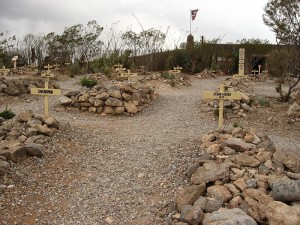 It’s black and oily and it looks like a hapless rat, its rib cage filled to overflowing with cloves of roasted garlic. The rodent’s pungent odor wafts through the air as soon as the waitress leaves the kitchen with my entrée, plopped on the plate between the mashed potatoes and the sauerkraut. I catch my breath, thinking that this would be completely inedible had the chef not removed its head and tail. As it is, I think I can stomach it–but it’s still a gastronomic repast for the serious adventurer.
It’s black and oily and it looks like a hapless rat, its rib cage filled to overflowing with cloves of roasted garlic. The rodent’s pungent odor wafts through the air as soon as the waitress leaves the kitchen with my entrée, plopped on the plate between the mashed potatoes and the sauerkraut. I catch my breath, thinking that this would be completely inedible had the chef not removed its head and tail. As it is, I think I can stomach it–but it’s still a gastronomic repast for the serious adventurer.
It’s a Friday in Lent, and I am in Riverview, one of a handful of communities in downriver Detroit where muskrat is served.

In the late 1700s, Father Gabriel Richard, a mathematics professor at St. Mary’s College in Maryland, was assigned by Bishop John Carroll to do missionary work with the Indians in the Northwest Territory. His first assignment was to what is now Kaskaskia, Illinois; but in the early 1800s he relocated to Detroit. There, his flock included French-Canadian fur trappers.
According to legend, Father Richard saw that the trappers and their families were going hungry during Lent, when fresh vegetables were not available and fish avoided capture. Reasoning that muskrats lived in the water, Father Richard issued a special dispensation, permitting the trappers to eat the animals’ flesh on Ash Wednesday and Lenten Fridays.
In the Archdiocese of Detroit, a 2002 document on Lenten observances explains, “There is a long-standing permission–dating back to our missionary origins in the 1700s–to permit the consumption of muskrat on days of abstinence, including Fridays of Lent.” The original document is missing, though, so it’s uncertain where the dispensation ends. Depending on who you ask, the muskrat dispensation applies in the communities of Wyandotte and Riverview, along the Rouge River and the Raisin River—both of which flow into Lake Erie south of Detroit—or include all of Monroe County, or all of southeast Michigan.
 Where can you go to find the little water rodents served up on a platter? One popular restaurant is Kola’s in Riverview, where I sampled my first (and only) roasted muskrat. St. Charles Borromeo parish in Newport, Michigan, holds an annual muskrat dinner to benefit its youth sports programs.
Where can you go to find the little water rodents served up on a platter? One popular restaurant is Kola’s in Riverview, where I sampled my first (and only) roasted muskrat. St. Charles Borromeo parish in Newport, Michigan, holds an annual muskrat dinner to benefit its youth sports programs.
Former Kola’s proprietor and chef Johnny Kolakowski specialized in wild game, and even published a cookbook Cookin’ Wild with Johnny, which explains how to prepare the critters with tomatoes, onions, garlic, bay leaves, soy sauce and white wine or beer.
Maybe drinking a little of that beer ahead of time will help to make it easier to swallow. Bon appetit!











